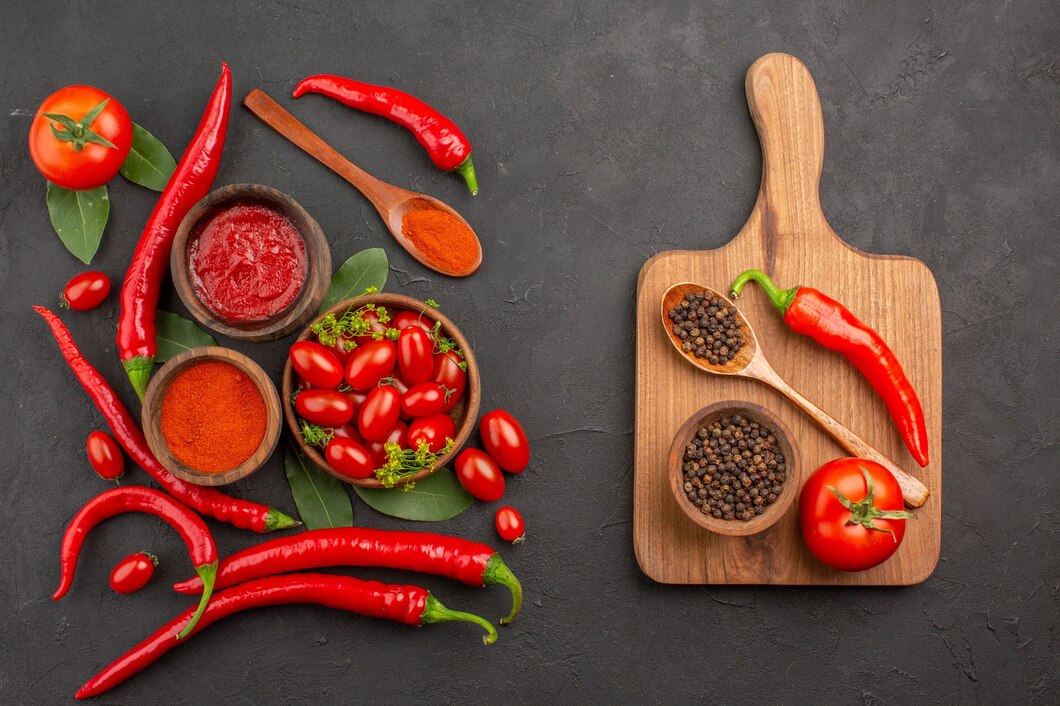Ulcers, which are open sores that develop on the lining of the stomach, small intestine, or esophagus, can cause significant discomfort and pain. Managing an ulcer often requires dietary modifications to prevent irritation and promote healing. Here are 20 foods South Africans should avoid if they have an ulcer:
- Spicy Foods: Spicy foods can irritate the stomach lining and exacerbate ulcer symptoms. Common examples include hot peppers, curry, chili powder, and spicy sauces.
- Citrus Fruits: Citrus fruits are acidic and can increase stomach acidity, worsening ulcer pain. Common examples include oranges, lemons, limes, and grapefruits.
- Tomatoes and Tomato Products: Tomatoes are highly acidic and can irritate the stomach lining. Common examples include fresh tomatoes, tomato sauce, and ketchup.
- Coffee: Coffee, even decaffeinated, can stimulate acid production in the stomach. Common examples include brewed coffee, espresso, and cappuccino.
- Alcohol: Alcohol can erode the stomach lining and increase stomach acid production. Common examples include beer, wine, spirits, and cocktails.
- Carbonated Beverages: The bubbles in carbonated drinks can increase stomach pressure and cause bloating, which may worsen ulcer symptoms. Common examples include soda, sparkling water, and fizzy drinks.
- Chocolate: Chocolate contains caffeine and other stimulants that can increase stomach acid. Common examples include milk chocolate, dark chocolate, and chocolate-flavored desserts.
- Fried Foods: Fried foods are hard to digest and can increase stomach discomfort and acid production. Common examples include fried chicken, French fries, and doughnuts.
- Fatty Meats: High-fat meats can slow digestion and increase stomach acid secretion. Common examples include sausages, bacon, and fatty cuts of beef or pork.
- Dairy Products: While some people may find relief from milk initially, it can later increase stomach acid production. Common examples include whole milk, cream, and full-fat cheese.
- Peppermint and Spearmint: Mint can relax the lower esophageal sphincter, allowing stomach acid to escape into the esophagus, worsening ulcer pain. Common examples include mint tea, peppermint candies, and spearmint gum.
- Garlic and Onions: These vegetables can cause gas and increase stomach acid production, leading to discomfort. Common examples include raw garlic, raw onions, and garlic powder.
- Pickled Foods: Pickled foods are acidic and can irritate the stomach lining. Common examples include pickles, sauerkraut, and pickled onions.
- Caffeinated Beverages: Caffeine stimulates acid production in the stomach. Common examples include tea, energy drinks, and certain soft drinks.
- Processed Foods: Processed foods often contain additives and preservatives that can irritate the stomach. Common examples include packaged snacks, ready meals, and processed meats.
- Red Meat: Red meat is harder to digest and can increase acid production. Common examples include beef, lamb, and game meats.
- Refined Grains: Refined grains lack fiber and can lead to slower digestion, increasing acid production. Common examples include white bread, white rice, and pastries.
- Baked Goods: Many baked goods contain high amounts of sugar and fat, which can irritate the stomach. Common examples include cakes, cookies, and pastries.
- Acidic Vegetables: Vegetables with high acid content can exacerbate ulcer symptoms. Common examples include radishes, raw onions, and raw bell peppers.
- Certain Condiments: Condiments often contain high levels of acid, sugar, or spices that can irritate the stomach. Common examples include mustard, vinegar-based dressings, and hot sauce.
Managing an ulcer requires careful attention to diet to avoid foods that can irritate the stomach lining and exacerbate symptoms. By avoiding these 20 foods, South Africans can help promote healing and reduce discomfort associated with ulcers. Instead, focus on a diet rich in soothing, non-irritating foods like lean proteins, non-citrus fruits, vegetables, and whole grains. Always consult with a healthcare professional for personalized advice and treatment for ulcers.








